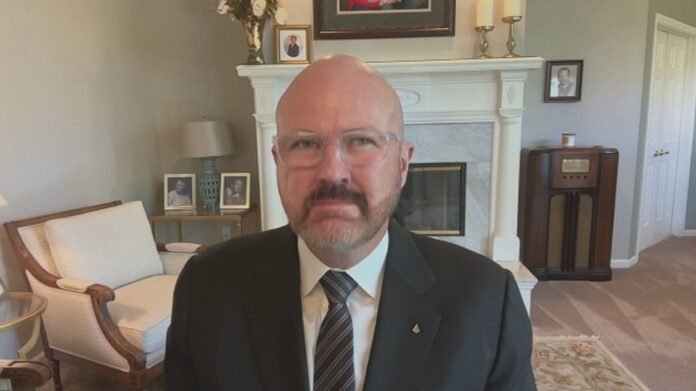As the Middle East continues to navigate instability, conflict, and shifting alliances, the Kurdistan Region has emerged as a rare pillar of stability and reliability. In a recent in-depth analysis of regional security dynamics, Kenneth Shockley, a prominent expert in high-threat security and crisis communication, praised the Region for its steadfast partnership with the United States and its growing appeal as an investment destination.
Reflecting on the broader security landscape, Shockley described the Kurdistan Region as a consistent and trustworthy ally that has proven itself across multiple conflicts and crises. He emphasized that while the wider Middle East has faced frequent governmental changes and security challenges, the Kurdistan Region has remained a dependable partner that the U.S. and its allies can count on.
According to Shockley, the Kurdistan Region’s strategic location bordering volatile zones in Syria and Iran has elevated its geopolitical importance. He noted that the Region plays a vital role in the U.S. approach to regional stability, both militarily and economically. In particular, the Kurdish Peshmerga forces have been lauded for their effectiveness and resilience, especially during the fight against ISIS. Their cooperation with American forces has been recognized as one of the strongest examples of successful military coordination in recent decades.
Beyond the battlefield, Shockley highlighted the Kurdistan Region’s economic potential. He noted that the area is increasingly seen by American businesses as a gateway for broader investment in Iraq and the region. While the energy sector remains a core strength, other industries—including manufacturing and infrastructure—are emerging as promising avenues for collaboration. He emphasized that Kurdistan’s political stability and commitment to development distinguish it from other parts of Iraq and the wider region.
Shockley pointed out that the Region’s leadership has prioritized peace, education, and social development over political posturing a contrast to the often politicized environments in Baghdad and Tehran. This people-first approach, he argued, has contributed to the Kurdistan Region’s consistent growth and resilience. He stressed that the Kurdistan Regional Government (KRG) has repeatedly demonstrated its reliability, whether during the fight against ISIS or in managing waves of displacement and regional crises.
He also called on the United States to play a more active role in ensuring constructive engagement between Baghdad and Erbil, noting that the Kurdistan Region has consistently fulfilled its obligations and shown a willingness to cooperate. Shockley encouraged Washington to recognize and reward this consistent partnership by supporting greater autonomy and investment in the Region.
In closing, Shockley framed the Kurdistan Region not only as a trusted military ally but as a platform for long-term economic and diplomatic engagement. With its steady leadership, reliable institutions, and pro-Western orientation, the Region is increasingly viewed by international partners as a model for what peace and development can look like in the Middle East.
For the United States, the Kurdistan Region remains a cornerstone of regional policy a partner that has earned its reputation through action, sacrifice, and vision.

